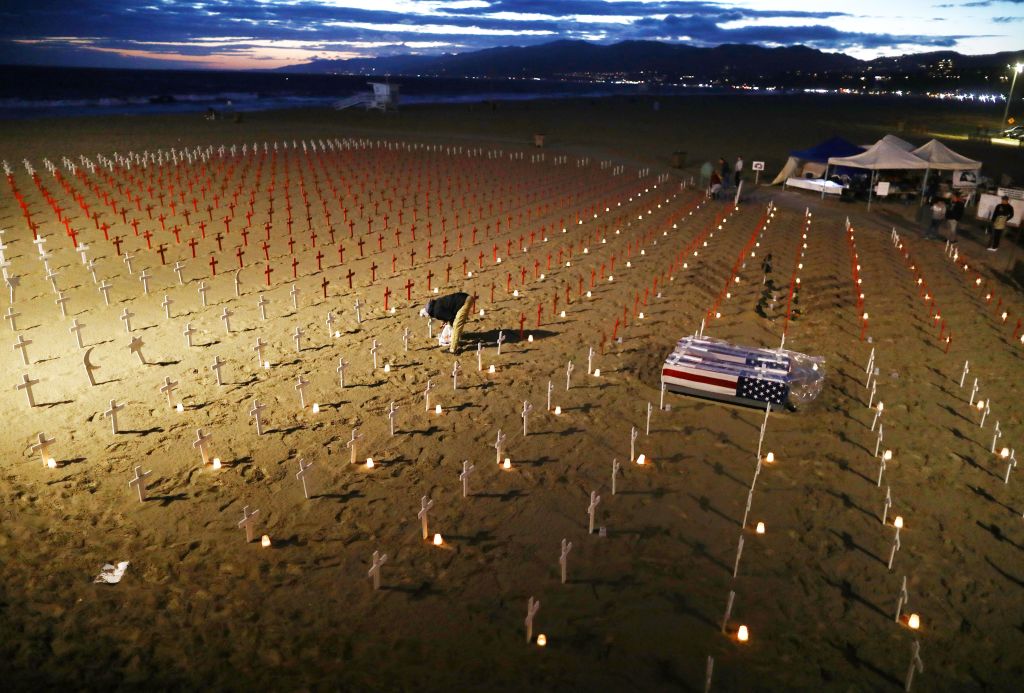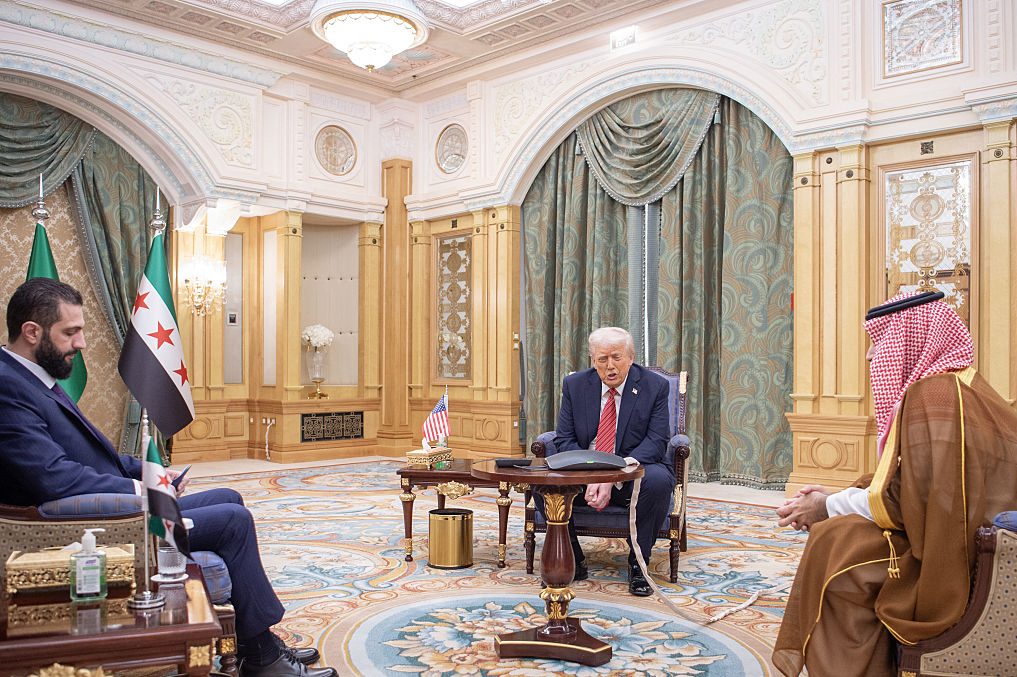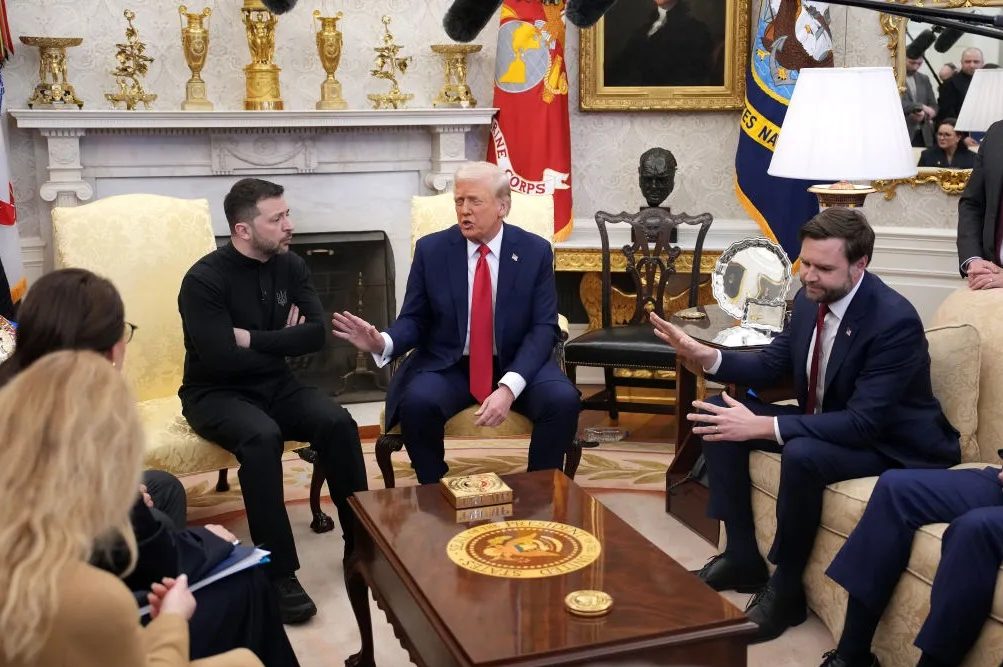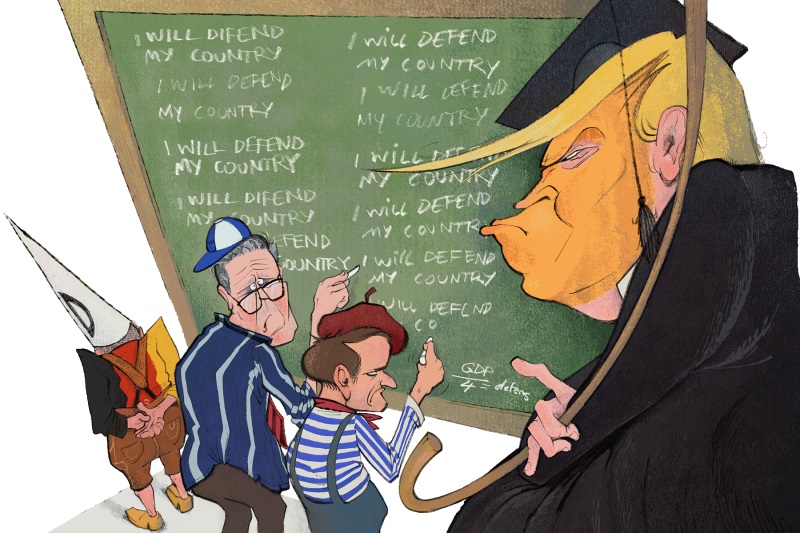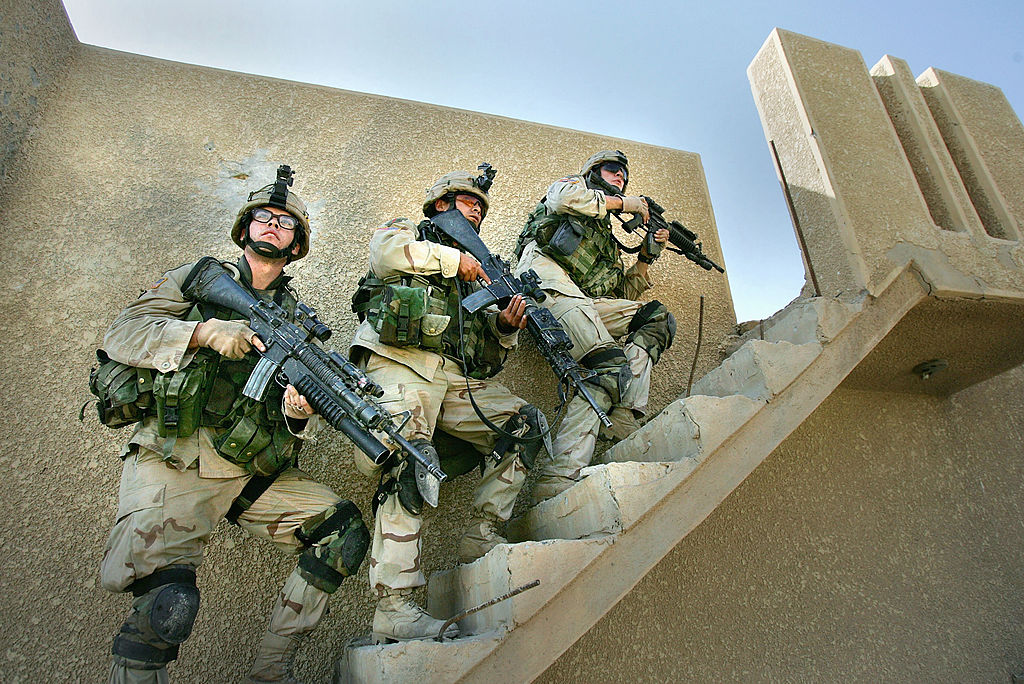Does anyone in their right mind really think the ‘War on Terror’ waged by the United States since 9/11 has been a successful policy? , The terrorist group the US claimed it was most determined to destroy, al-Qaeda, has surged in strength over the last few years. ISIS sprouted in Iraq and Syria as a direct consequence of the general ‘War on Terror’ posture, which had its most egregious manifestation in the 2003 invasion. Today, the US bombs countries and stations troops all over the world with the nebulous goal of ‘defeating terrorism,’ which of course is just a tactic and can never be truly ‘defeated’ – or so we once thought.
Back in the George W. Bush years, a common left/liberal refrain was that you can’t defeat an ideology militarily or with brute force, and therefore the entire premise of a ‘War on Terror’ was fatally flawed. The only real tangible result of the post-9/11 transformation of American politics and law was to do away with civil liberties, institute a massively invasive state surveillance regimen, and generally instill in the public mind an outsized fear of ‘terrorists’ that was never congruent with the actual threat posed.
Whenever the specter of ‘terrorism’ is invoked, the most reliable outcome is people surrendering their critical faculties and accepting the erosion of basic rights. Somehow applying the label ‘terrorism’ to violent acts automatically exalts those acts into quasi-metaphyical status, whereupon politicians and journalists solemnly intone how ‘everything has changed’ and swift remedial action is urgent. Generally those remedies fail to prevent future ‘terrorism’ but succeed in undercutting the First, Fourth, and Fifth Amendments to the Constitution, which are deemed obsolete in the heat of the post-attack panic.
Given the wreckage of the recent past – the erection of an enormous surveillance state, the farcical militarization of local police forces, the endless foreign policy misadventures, the scapegoating of Arabs and Muslims for problems they had nothing to do with, to just barely scratch the surface – why are so many now insisting on applying the same ‘War on Terror’ framing to the matter of domestic white nationalism?
Some have explicitly called for this; Michael McFaul, Obama’s Russian ambassador and a frequent media commentator, outright advocated for a ‘War on Terror’ waged on the home front to root out would-be white nationalist attackers. You can be reasonably concerned about the threat of white nationalism while still finding McFaul’s suggestion to be insane. Again, the lesson once voiced by liberals, but now apparently forgotten, was that you cannot wage a ‘war’ against an ideology. In fact, assuming a warlike posture serves only to inflame the adherents of the ideology, while ignoring the root causes of their violent outbursts. Further militarizing society with the ‘war’ McFaul envisions would only exacerbate the problem – while corroding the country’s social fabric – if recent history is any guide.
The El Paso mass shooter, now responsible for 22 deaths, had a specific goal in mind. He intended to reshape American society in accordance with his depraved beliefs, and reasoned that committing a heinous act would be the best means by which to do so. Some policy prudent adjustments, especially around gun ownership, might well be warranted. But framing his act through the lens of ‘domestic terrorism’ is just the kind of rash overreaction that so sullied the country after previous attacks. Mass murder is already illegal, so it would be patently redundant – as Andrew Yang and others have suggested – to enact a new ‘domestic terrorism’ statute which would almost certainly end up enveloping people who have nothing to do with ‘terrorism.’ Donald Trump seems to be on the same page, having yesterday called for more aggressive monitoring of the internet to ‘detect mass shooters before they strike.’ This suggests that some glorious bipartisan initiative is likely in the offing, and there’s anything to be learned about new ‘bipartisan’ laws passed in the wake of ‘terrorist attacks,’ it’s that they end up being used first and foremost for a wide variety of purposes that are wholly unrelated to ‘terrorism.’
The PATRIOT Act, rushed into law after 9/11, later came to be used overwhelmingly for drug prohibition cases. Another less known statute, passed after the Oklahoma City bombing, ended up depriving large numbers of non-terrorists of habeas corpus. There’s a clear pattern, and yet so many in the media and political class see fit to shriek ‘Terrorism! Do something!’ straight after such tragic events like these – despite the abysmal track record of that reaction.
The immediate aftermath of terrorist attacks offers the most important time to insist that civil liberties not be encroached upon. That’s not to say that nothing can be done. But rather than overreacting to ‘terrorism,’ the wiser course would be instead to take an even-keeled and sober approach to all acts of political violence, with the awareness that violence of this kind has been a constant throughout American history and will likely never go away. This circumspection should be applied just as much to Islamic radicals as white racist radicals, or any other kind of radical who commits large-scale atrocities. Declaring war, militarizing society, and upending the core fabric of American jurisprudence is simply not the shrewd response – which you would have thought all right-minded people had long ago acknowledged. But invert the ideological contours of the debate – white nationalist ‘terrorists’ replacing Islamic ‘terrorists’ – and the people who would have previously urged restraint are now calling for blood. (And a large percentage of conservatives are now conspicuously concerned about civil liberties.)
Ultimately we must reject the very logic of ‘terrorism’ playing such an outsized role in public consciousness, whatever the motive of the perpetrator. Otherwise, the harm caused by the initial attack is only the beginning.



